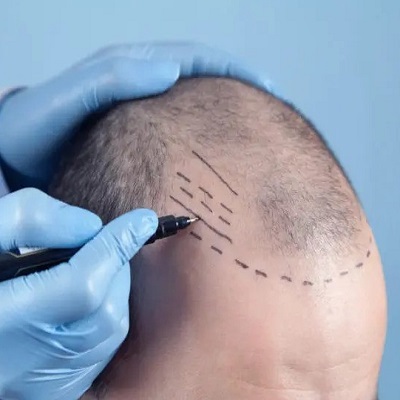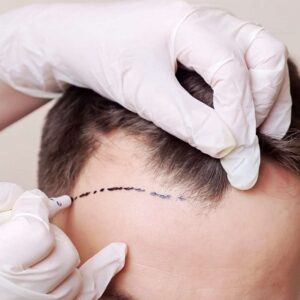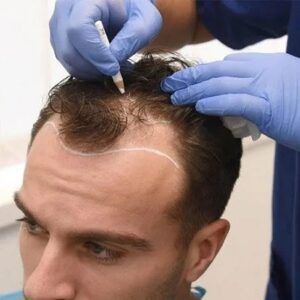
If you want a long-lasting or permanent hair loss solution, a hair transplant is one of them. Moreover, it not only gives back your hair but also your confidence. However, your surgeon will consider several criteria before proposing a hair transplant. Moreover, only some are good candidates for the treatment. However, having hair restoration surgery is a major choice that needs careful consideration. However, many individuals put off getting the transplant for far too long. Therefore, how soon can you have a transplant?
Therefore, if you have been losing hair for years, you might have just seen hair coming out in the shower. Moreover, it would help if you read this blog to know how to choose the right time for a hair transplant in Islamabad. Additionally, we will review the ideal time to get a hair transplant, warning indications that it could be too late, and advice on stopping hair loss before it starts.
How To Choose the Right Time for A Hair Transplant:
An important factor that might affect the treatment outcome and the degree of satisfaction with the final result is the timing of the hair transplant.
Once choosing when to get a hair transplant, keep the following variables in mind:
● Age and Stability of Hair Loss:
After hair loss has stabilized, getting a hair transplant is usually advised. Because hair loss tends to worsen with age, having the surgery too soon might mean that later on, more transplants will be required to stop the loss of hair.
● General Well-Being:
It needs both sound physical and emotional health to have a successful hair transplant. Taking care of any underlying medical issues is important before considering the treatment.
● The Expectations of The Patient:
It is critical to have reasonable expectations. Hair transplants redistribute existing hair rather than growing new hair. Comprehending the constraints and possible results is essential for achieving total contentment.
● Seasonality to Consider:
Some people choose to get their hair transplants in the cooler months since it is usually advised to wear hats or stay out of the sun while recovering from the procedure. It is more of a matter of taste and could change depending on how comfortable each person is.
● Workplace and Social Obligations:
Take into account your social and professional obligations. It is important to make plans for recovery after a hair transplant to reduce tension and suffering during the early healing phase.
● Cycle of Hair Growth:
It is essential to comprehend the normal cycle of hair development. When hair is resting, transplants tend to go more smoothly, promoting higher graft survival and integration.
● Method of Hair Transplantation:
Recovery periods differ for various procedures, including FUE (Follicular Unit Extraction) and FUT (Follicular Unit Transplantation). Talk about your best approach and the accompanying recovery duration with your surgeon.
Individual Timetable:
When you can take a few days off from work or other obligations, schedule the surgery. It will relieve extra tension so you can concentrate on getting well.
Meeting with a Hair Transplant Expert:
Make an appointment for a consultation with a licensed hair transplant expert in Islamabad. They may evaluate your particular circumstances, talk with you about your objectives, and provide tailored counsel on the best treatment time.
Various factors about health, way of life, and individual circumstances have a role in determining the ideal moment for a hair transplant. It will be easier to ensure a more effective hair transplant procedure by speaking with a skilled specialist and considering these considerations. To consult with the best hair consultant for hair transplants in Islamabad, Dynamic Clinic is your right choice.
Conclusion:
Time is crucial for a successful hair transplant, influenced by various factors such as expectations, health, and hair loss stability. A seamless experience depends on seasonal and lifestyle factors, including recuperation times and personal routines. Understanding the hair development cycle and transplant methods allows for informed choices, while personalized consultations provide insights for self-assurance and fulfillment. The decision to have a hair transplant is a unique and personalized procedure that combines personal circumstances, expectations, and medical factors.












